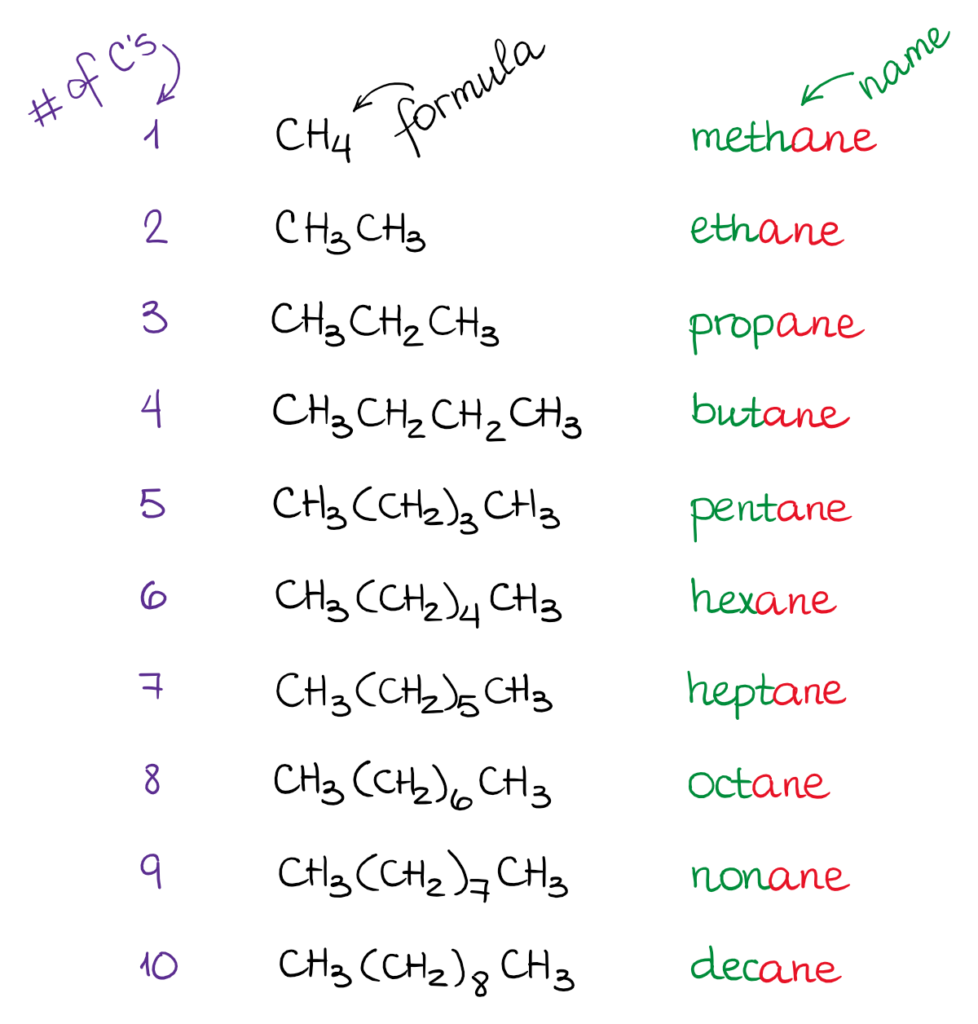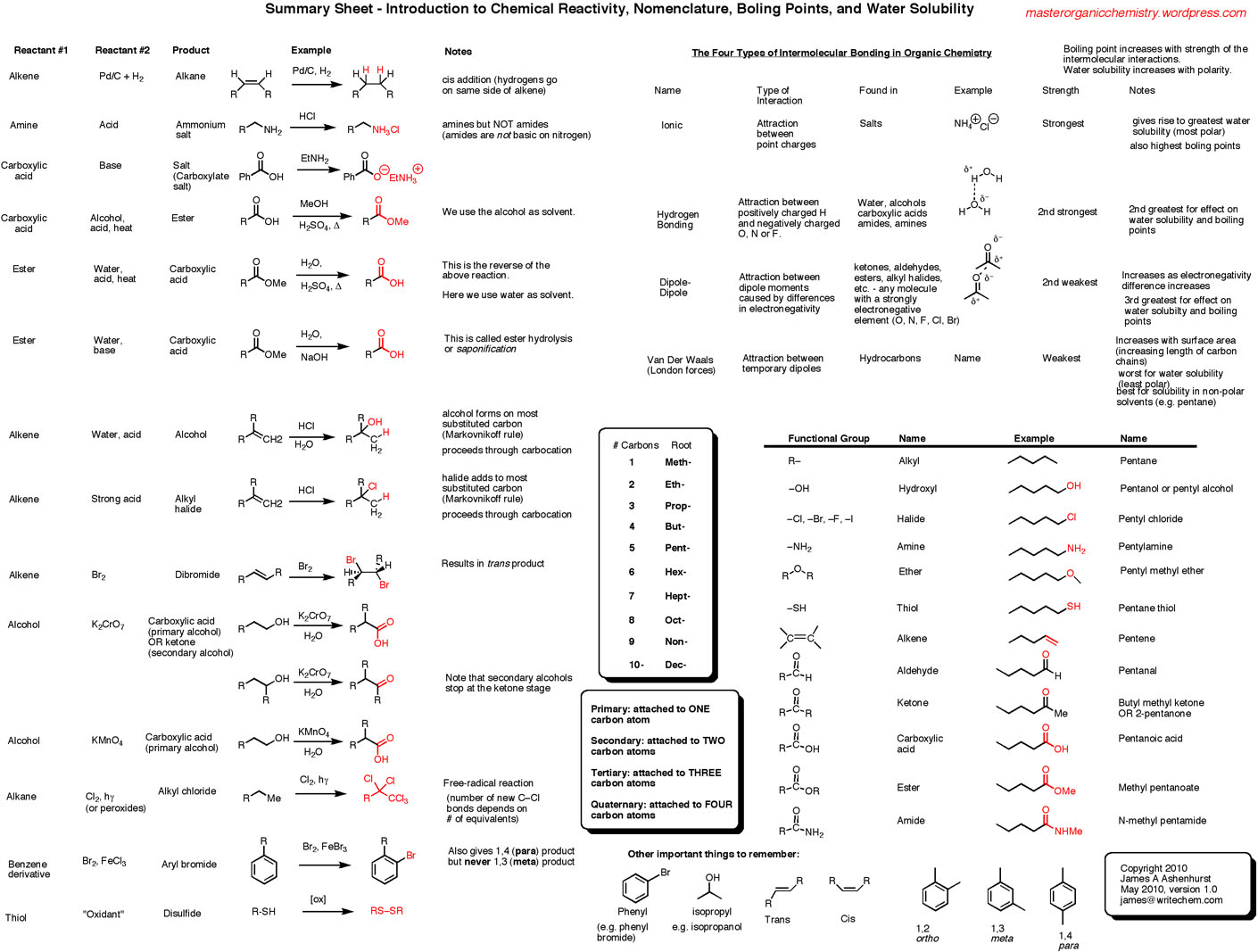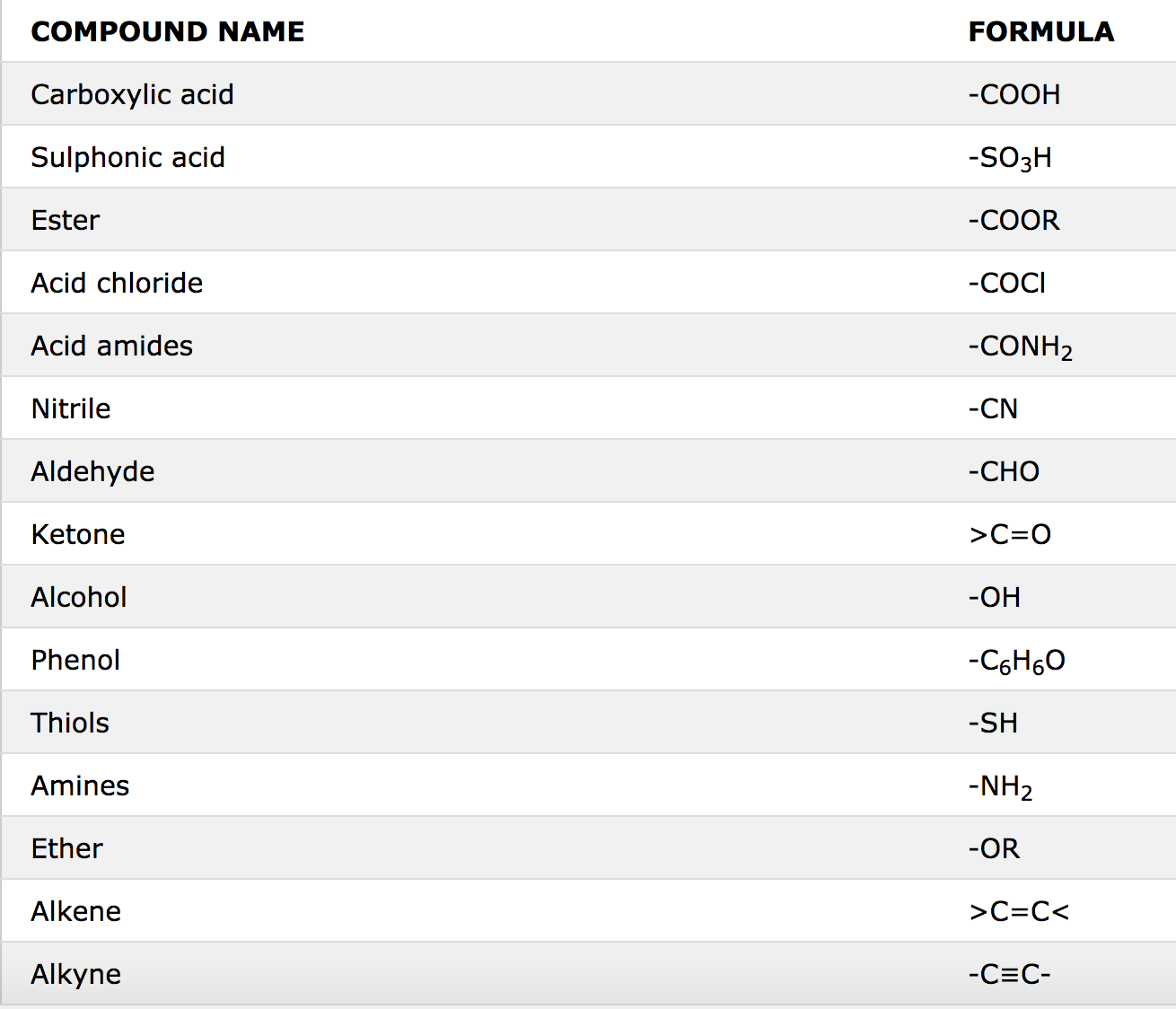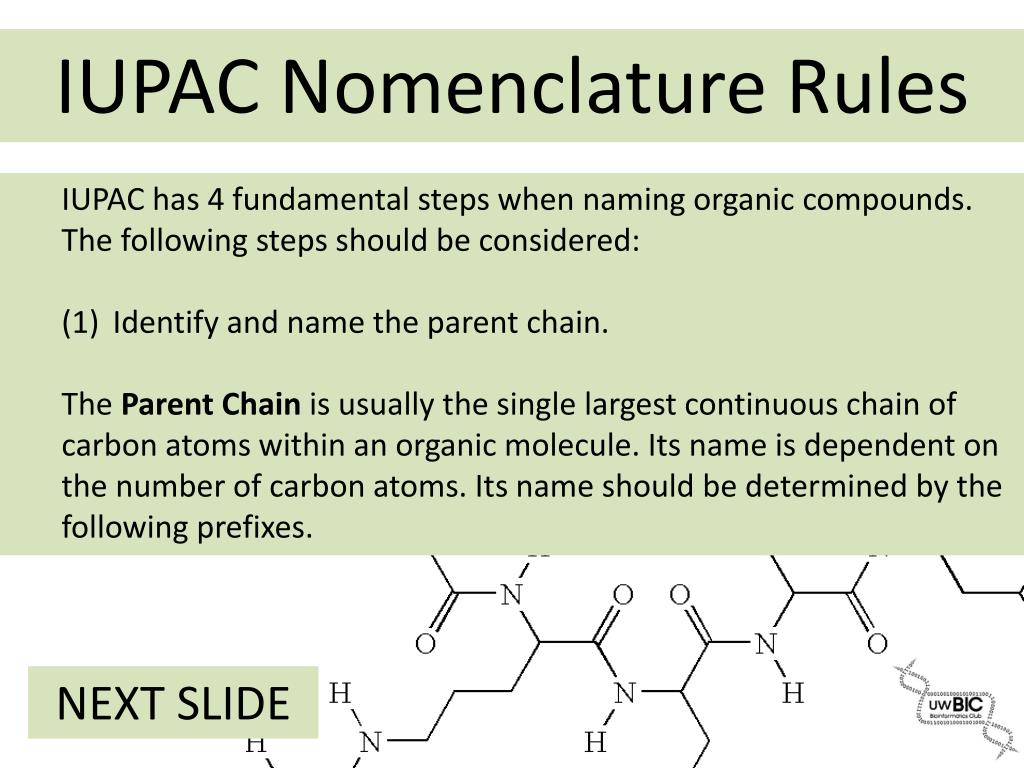In this age of technology, where screens dominate our lives however, the attraction of tangible printed items hasn't gone away. Whether it's for educational purposes, creative projects, or simply to add a personal touch to your home, printables for free have proven to be a valuable resource. With this guide, you'll take a dive to the depths of "Organic Chemistry Naming Rules," exploring what they are, how they are available, and how they can add value to various aspects of your lives.
Get Latest Organic Chemistry Naming Rules Below

Organic Chemistry Naming Rules
Organic Chemistry Naming Rules -
In chemical nomenclature the IUPAC nomenclature of organic chemistry is a method of naming organic chemical compounds as recommended by the International Union of Pure and Applied Chemistry IUPAC It is published in the Nomenclature of Organic Chemistry informally called the Blue Book
Table 2 3 Naming Priorities of Common Functional Groups Table 2 4 Subordinate Groups We will go through several examples for more details about the naming rules 1 The parent structure is the 6 carbon carboxylic acid with a double bond so the last name comes from hexene
Printables for free include a vast assortment of printable, downloadable documents that can be downloaded online at no cost. They come in many types, such as worksheets templates, coloring pages and many more. One of the advantages of Organic Chemistry Naming Rules lies in their versatility and accessibility.
More of Organic Chemistry Naming Rules
The Culture Of Chemistry A Chemistry Decoder

The Culture Of Chemistry A Chemistry Decoder
Criteria for choosing the single name which is to be preferred for regulatory purposes the Preferred IUPAC Name or PIN 2 SUBSTITUTIVE NOMENCLATURE Substitutive nomenclature is the main method for naming organic chemical compounds It is used mainly for compounds of carbon and elements of Groups
1 carbon methane 2 carbons ethane 3 carbons propane 4 carbons butane 5 carbons pentane 6 carbons hexane 7 carbons heptane 8 carbons octane 9 carbons nonane 10 carbons decane While many of these names share a Greek root with more familiar geometric shape names some do not
Printables for free have gained immense popularity due to a myriad of compelling factors:
-
Cost-Efficiency: They eliminate the requirement of buying physical copies or costly software.
-
Personalization There is the possibility of tailoring printing templates to your own specific requirements, whether it's designing invitations making your schedule, or even decorating your house.
-
Educational Benefits: The free educational worksheets cater to learners of all ages. This makes them a great tool for parents and educators.
-
Accessibility: Quick access to many designs and templates will save you time and effort.
Where to Find more Organic Chemistry Naming Rules
Naming Archives Organic Chemistry Tutor

Naming Archives Organic Chemistry Tutor
According to the terms provided by IUPAC naming system three parts are required a root word a chemistry prefix and a suffix when naming organic compounds to help scientists quickly and
The IUPAC nomenclature system is a set of logical rules devised and used by organic chemists to circumvent problems caused by arbitrary nomenclature Knowing these rules and given a structural formula one should be able to write a unique name for every distinct compound
If we've already piqued your curiosity about Organic Chemistry Naming Rules and other printables, let's discover where you can locate these hidden treasures:
1. Online Repositories
- Websites such as Pinterest, Canva, and Etsy provide a wide selection of Organic Chemistry Naming Rules for various motives.
- Explore categories such as decorations for the home, education and management, and craft.
2. Educational Platforms
- Educational websites and forums typically offer worksheets with printables that are free including flashcards, learning materials.
- Ideal for parents, teachers and students looking for additional sources.
3. Creative Blogs
- Many bloggers share their imaginative designs and templates, which are free.
- The blogs are a vast range of topics, from DIY projects to planning a party.
Maximizing Organic Chemistry Naming Rules
Here are some fresh ways that you can make use use of printables for free:
1. Home Decor
- Print and frame beautiful artwork, quotes or seasonal decorations that will adorn your living spaces.
2. Education
- Use these printable worksheets free of charge to enhance your learning at home and in class.
3. Event Planning
- Create invitations, banners, as well as decorations for special occasions like birthdays and weddings.
4. Organization
- Stay organized with printable calendars with to-do lists, planners, and meal planners.
Conclusion
Organic Chemistry Naming Rules are a treasure trove of creative and practical resources that satisfy a wide range of requirements and preferences. Their accessibility and versatility make them an essential part of both professional and personal life. Explore the wide world of Organic Chemistry Naming Rules today and uncover new possibilities!
Frequently Asked Questions (FAQs)
-
Do printables with no cost really cost-free?
- Yes they are! You can download and print these materials for free.
-
Are there any free printouts for commercial usage?
- It depends on the specific terms of use. Always check the creator's guidelines before utilizing printables for commercial projects.
-
Do you have any copyright concerns when using Organic Chemistry Naming Rules?
- Certain printables may be subject to restrictions concerning their use. Be sure to check the terms and regulations provided by the designer.
-
How can I print Organic Chemistry Naming Rules?
- You can print them at home using either a printer or go to the local print shops for superior prints.
-
What program do I require to view Organic Chemistry Naming Rules?
- Many printables are offered in the format of PDF, which can be opened using free software such as Adobe Reader.
Organic Nomenclature Organic Chemistry Teaching Chemistry Chemistry

NEET Chemistry Nomenclature Of Organic Compounds IUPAC Rules YouTube

Check more sample of Organic Chemistry Naming Rules below
IUPAC Rules For Naming Organic Compounds Containing One Or More

Organic Chemistry Nomenclature Organic Chemistry Teaching Chemistry

Organic Chemistry Naming Alkanes

A Basic Guide To Decoding Organic Compound Names Compound Interest

Summary Sheet Introduction To Reactivity And Nomenclature Master

A Basic Guide To Decoding Organic Compound Names R hazmat


https://chem.libretexts.org/Bookshelves/Organic...
Table 2 3 Naming Priorities of Common Functional Groups Table 2 4 Subordinate Groups We will go through several examples for more details about the naming rules 1 The parent structure is the 6 carbon carboxylic acid with a double bond so the last name comes from hexene

https://byjus.com/chemistry/nomenclature-of-organic-compounds
IUPAC Nomenclature Of Organic Compounds Nomenclature is the uniform system for naming the compounds Know IUPAC system rules and how to name organic compounds Types of Chemical Nomenclature Compositional Substitutive Visit BYJUS to learn more about it
Table 2 3 Naming Priorities of Common Functional Groups Table 2 4 Subordinate Groups We will go through several examples for more details about the naming rules 1 The parent structure is the 6 carbon carboxylic acid with a double bond so the last name comes from hexene
IUPAC Nomenclature Of Organic Compounds Nomenclature is the uniform system for naming the compounds Know IUPAC system rules and how to name organic compounds Types of Chemical Nomenclature Compositional Substitutive Visit BYJUS to learn more about it

A Basic Guide To Decoding Organic Compound Names Compound Interest

Organic Chemistry Nomenclature Organic Chemistry Teaching Chemistry

Summary Sheet Introduction To Reactivity And Nomenclature Master

A Basic Guide To Decoding Organic Compound Names R hazmat

PPT Organic Chemistry PowerPoint Presentation Free Download ID 2067983

Organic Chemistry 101 Nomenclature Organic Chemistry Organic

Organic Chemistry 101 Nomenclature Organic Chemistry Organic

Organic And General Chemistry Nomenclature Digital Notes For Etsy